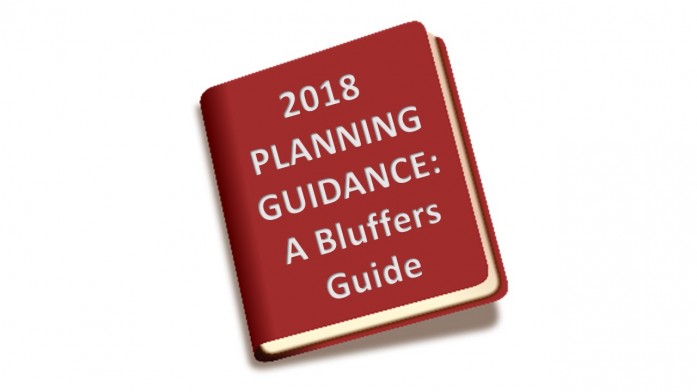I have always wondered who actually reads NHS planning guidance. It contains really important information, but it is always so dry and impenetrable (deliberately?) that most will rely on “bluffers” briefings from others. So here is my “bluffers” briefing for you (although it is here in full for the brave hearted). There are three key messages for general practice:
1.The Obsession with GP Access Continues
Buoyed by the apparent success of introducing extended access across groups of practices at evenings and weekends, the timetable for 100% coverage across the country has been moved up by 6 months to 1st October this year. How much of the heralded 52% of the country that is already covered have permanent (as opposed to pilot) arrangements in place is not known, so expect a plethora of hastily put together procurements to emerge in the coming weeks. These are likely to represent something of a risk to local systems, because if the tenders are not awarded to local practices it will mean a fifth of the GPFV investment going elsewhere (£500m of the promised GPFV £2.4bn is for extended access), and GP engagement in integrated working may suffer as a result.
2.The Rise and Rise of STPs and Integrated Care Systems
And integrated working, as I am sure you already know, is now king. The furore over accountable care systems/organisations has led to a renaming as “Integrated Care Systems”. That should do it. More interesting is some of the insight the narrative provides as to how these will operate in future.
In the short term, the power and influence of STPs will rise. They will have “an increasingly prominent role in planning and managing system wide efforts to improve services”. They are expected to develop their management infrastructure. They will be the conduit for capital allocations.
It doesn’t stop there. Over time “we envisage Integrated Care Systems (ICSs) will replace STPs”. These ICSs will have one plan across all their constituent organisations, rather than there being a collection of individual organisational plans. It will be the role of the ICS to assure and track the progress of its member organisations. If an individual trust or CCG has financial or quality issues “the leadership of the ICS will play a key role in agreeing what remedial action needs to be taken”. This is code for ICSs being able to fire the CEOs of the member organisations, the key determinant of where the power lies.
What role this leaves for CCGs (the guidance also all but outlaws the use of contract penalties) is very difficult to identify. Most likely is an acceleration of the merging of CCG teams and the development of a (heavily reduced) “strategic commissioning” functions coterminous with the STP/ICS area.
The development of ICSs will also impact general practice directly. For an area to become an ICS they need “compelling plans to integrate primary care, mental health, social care and hospital services using population health approaches to redesign care around people at risk of becoming acutely unwell. These models will necessarily require the widespread involvement of primary care, through incipient networks”.
Incipient networks? Anyone? All becomes clearer later on in the guidance as CCGs are directed to “actively encourage every practice to be part of a local primary care network, so that there is complete geographically contiguous population coverage of primary care networks as far as possible by the end of 2018/19, serving populations of at least 30,000 to 50,000”.
“Geographically contiguous” is new. I know plenty of areas that have encouraged practices to form networks with like-minded practices, regardless of geographical location. They won’t be happy. It is all very reminiscent of CCG-formation days. And what “actively encourage” means is anyone’s guess. Carrot or stick? Time will tell.
3.There is No New Money
Were you expecting any? The message for general practice is essentially investment will continue as outlined in the GP Forward View (and if you missed it, here’s a quick reminder of why the promised £2.4bn is not £2.4bn) – i.e. there is no additional, previously unannounced money. You should still expect the balance of the £3 a head one-off commitment from CCGs between 2017 and 2019, as well as the remaining sustainability and resilience funding to be spent next year (75% by December 2018, and 100% by March 2019).
Financial pressure in the system means “non-elective demand management” is to make up the majority of the CCG Quality Premium scheme. Urgent care will be a focus, but the elective position essentially just must not get any worse. GP referrals are assumed to remain flat (“increase by 0.8% i.e. no change per working day” – whatever that means). And, the guidance confidently states, “there will be no additional winter funding in 2018/19” (there will).
There is a push on CCGs to reduce the routine prescribing of 18 ineffective and low clinical value medicines, and savings against this are “assumed” for CCGs, so expect more pressure here. There is also a national consultation on reducing prescribing “of over-the-counter medicines for 33 minor, short-term health concerns, as well as vitamins and probiotics”.
Finally, there is one other bizarre addition I wanted to point out – a requirement for CCGs to ensure every practice implements at least two of the high impact “time to care” actions. Make of that what you will, but it does seem to highlight the persistent inability of the system to distinguish between top down and bottom up.
There you go – the essentials of the planning guidance in one five-minute chunk – now you can bluff with confidence!


2 Comments
For the comprehensively educated (like me) incipient means ‘new or developing’ vs. insipid which means ‘lacking vigour or interest’. Do you think NHSE made a typo……..???
Hi Terry – Maybe. Can they be both?